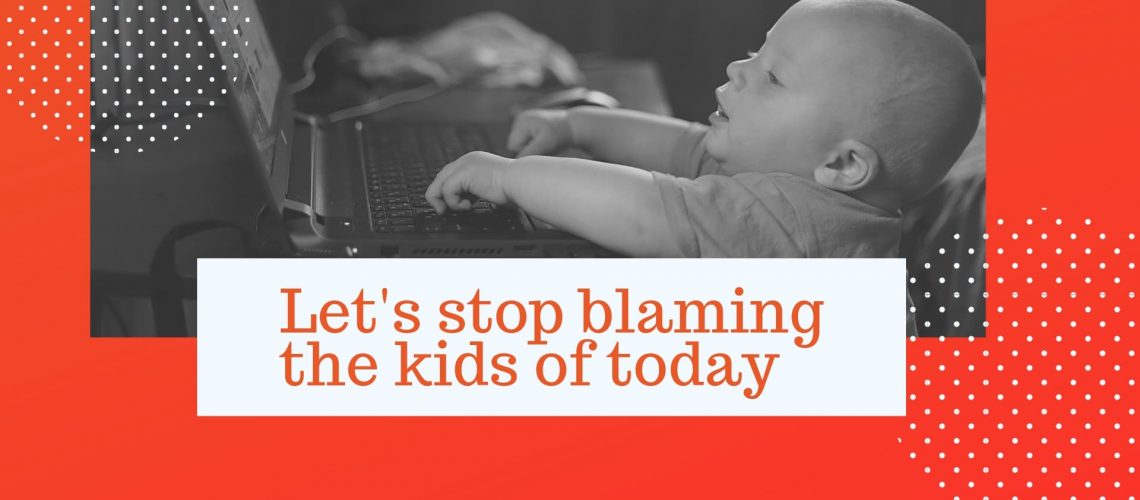It’s not that you didn’t have to use a device to be entertained when you were young…it’s that you didn’t have to say ‘no’ to one.
We often hear parents lamenting the role that technology plays in their kids life. They are always on their device. They won’t go out and play. They can’t talk to people in real life and make eye contact. They throw a tantrum when asked to put a device away. They won’t come to the dinner table when asked to because they are just about to be the last man standing on Fortnite and I am ruining his life asking them to shut it down….
When we were young we didn’t need a device to keep us entertained. We used our imagination. Ran Wild. Made up games.
But here’s the truth again.
It’s not that you didn’t have to use a device to be entertained when you were young…..it’s that you didn’t have one to say ‘no’ to.
I am pretty darn sure that if I was handed a device as a 10, 11 or 12 year old kid I would be facing the same kind of challenges our kids are facing today…..and my parents would be facing the same kind of challenges that parents are facing today. It’s not the kids that have changed. Let’s face it, most of them aren’t allowed to hang out in the suburbs and local streets for 3 hours without making any contact with you unless they take a phone just in case something happens. They’d probably love that if we only let them (our connected world and 24/7 news feeds have made the physical world seem a pretty scary place so most wouldn’t let their kids out when we know the physical world is no more dangerous than in years gone by). But that’s a whole other post!
Because these devices answer many of our kids perceived needs. They entertain them, inform them, and increasingly they connect and socialise them. So they answer a lot of what kids think they need. But we as the parents know they need more. So we as the parents must continue to do more to ensure those needs are being met.
And there is no doubt we are fighting an uphill battle. I have had Dr Kristy Goodwin on the blog explaining to us what happens to our brains when we pick up a device. We battle dopamine releases, we risk interrupting a state of flow that ensures kids are so engrossed that to interrupt would render World War 3, and we are presented with a device that offers no end to the ways that it can entertain, connect and inform us. And let’s not forget many of the games and social medias are made to keep us on, keep us connected, keep us commenting, keep us striving for the next level or to be the last man standing. They are very clever at keeping us on.
And so. How can we expect a child of 7, 8 or 9 or 13 to be able to adequately manage their time spent online? How can we expect them to have the cognitive ability to know that extended periods of time are not going to do them any favours? How can we expect them to come to us and say “hey mum or dad, I think that it’s important that my brain and body receive adequate input from many other areas of my life, so please insist on making sure I put it away frequently. That way I know I am getting sufficient input from the physical real life world’. Maybe that happens for a few kids. And I certainly present my student talks in a way that highlights to them their many needs. But without parental input, it’s highly unlikely they will take this upon themselves.
So.
If you are going to hand your kid a device, please understand that they are not going to have the ability to regulate themselves. They simply do not have the cognitive ability to make the decisions that it seems many of us are asking of them. That includes time spent online, sites they visit, accounts they set up.
We must help them with that. Don’t be afraid to take it away. Don’t be afraid to monitor the time they are using it. Don’t forget to talk to them about what they may face. Don’t always expect them to go outside and play if this isn’t something you have fostered and nurtured. Don’t complain about the role the devices are playing in your kids life and expect them to have the skills, thinking and behaviours to get this stuff right if it’s not something that is being constantly addressed.
And believe me I know it isn’t easy. I also have struggles with my own use and my kids use at times, and so I know it feels like we are always asking the parents to do more.
But build it and they will come. Hand it over and they will play.
Let’s continue to work to be proactive and mindful about that play, and not just put it down to “the kids of today”.

